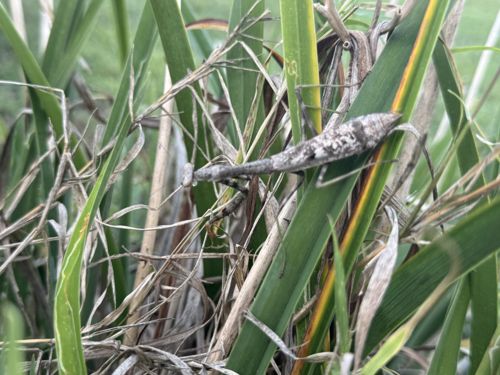Grasshopper (likely Cryptic Bush-Cricket or a close relative)
Scientific Name: Likely a species within the genus Phaneroptera or a similar Tettigoniidae (bush-cricket) genus. Exact species determination from image alone is difficult.
Order & Family: Orthoptera, Tettigoniidae
Size: Varies by species, but generally 2-5 cm (0.8-2 inches) in length for bush-crickets.

Natural Habitat
Typically found in grassy areas, meadows, fields, and gardens, often blending in with vegetation due to their camouflage.
Diet & Feeding
Mainly herbivorous, feeding on various plant leaves, grasses, and sometimes flowers. Some species can be omnivorous, occasionally consuming small insects.
Behavior Patterns
They are active during the day and night. Known for their excellent camouflage, which helps them avoid predators. Males produce characteristic 'songs' (stridulation) by rubbing their wings together to attract mates. They are generally solitary but can be found in groups in suitable habitats.
Risks & Benefits
Generally harmless to humans. In large numbers, some grasshopper species can be considered agricultural pests due to their plant-eating habits. However, they also serve as a food source for numerous predators, including birds, reptiles, and mammals, playing a role in the food chain. They are also indicators of healthy grassland ecosystems.
Identified on: 10/7/2025